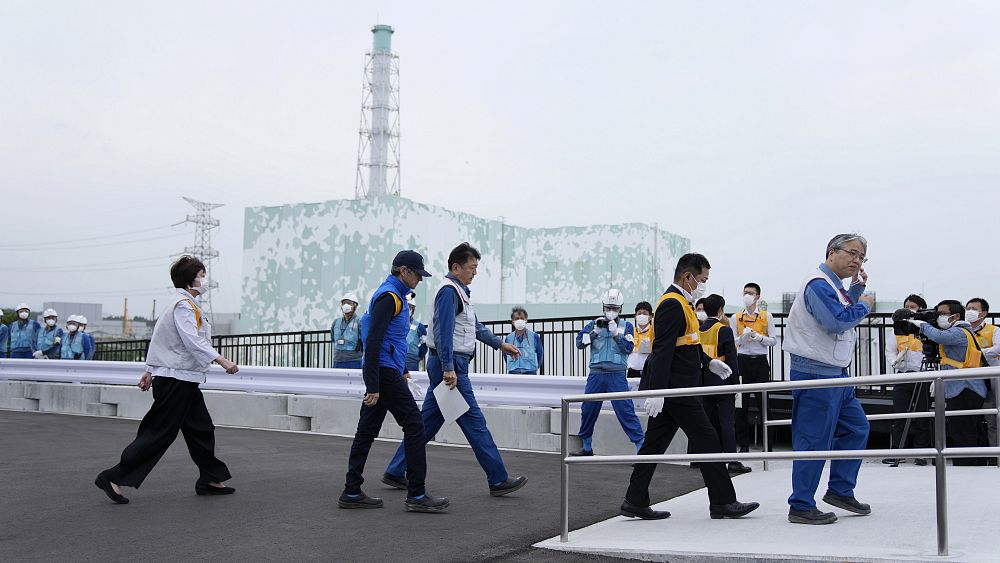
Head of the UN nuclear watchdog, Rafael Grossi, insists plans to release treated waste water from the Fukushima nuclear plant are safe despite international concerns
Rafael Grossi, from the International Atomic Energy Agency, made a personal visit to the plant on 5 July following his announcement, the day before, of the body’s approval of controversial plans to release the water into the sea.
The clean-up after the partial reactor meltdown following 2011’s tsunami has taken over a decade. But Grossi says the facility can now operate safely
“For the past five hours or so I have been visiting different places, different locations,” he explained. “And I was also able to look closer to the facilities that are in preparation in case there is a decision to start with the controlled discharges, and I was satisfied with what I saw.”
In an effort to address concerns about the treated water on the fish and marine environment, Grossi and the president of the plant operator, Tokyo Electric Power Company Holdings, Tomoaki Kobayakawa, signed an agreement on a joint project to see if or how marine life is impacted by tritium, the only radionuclide officials say is completely unremovable.
Much of the Fukushima wastewater contains cesium and other radionuclides, but it will be further filtered until the water is below international standards for all but tritium.
IAEA reassurances
Earlier, Grossi had delivered the same message to local representatives of fishers and farmers who were worried about reputational harm to their products. Japan’s neighbours are also concerned.
The move is strongly opposed by groups in South Korea, China and some Pacific Island nations due to safety concerns and political reasons.
China’s Foreign ministry spokesperson, Wang Wenbin, said: “The discharge of Japan’s Fukushima nuclear-contaminated water is of great international public interest and there is no room for ambiguity or mistakes.
“China urges Japan to respect science and facts and not try to use the IAEA report as a shield to discharge into the sea.”
Protests have taken place in South Korea over the plan. Activists in Seoul said the nuclear watchdog did not consider alternatives to water discharge.
South Korea’s government said it respects the IAEA’s decision even though it has not succeeded in reassuring all its citizens.











